
Canine tooth fangs Lips Teeth Macro Closeup HD wallpaper Pxfuel
1/19 Synonyms: Cuspid tooth, Dens cuspidatus The canine is located as the third tooth from center (central incisor > lateral incisor > canine). It is a sharp tooth with a single point or cusp, designed for tearing or piercing food. The canine may also be called the eyetooth, fang or vampire tooth.
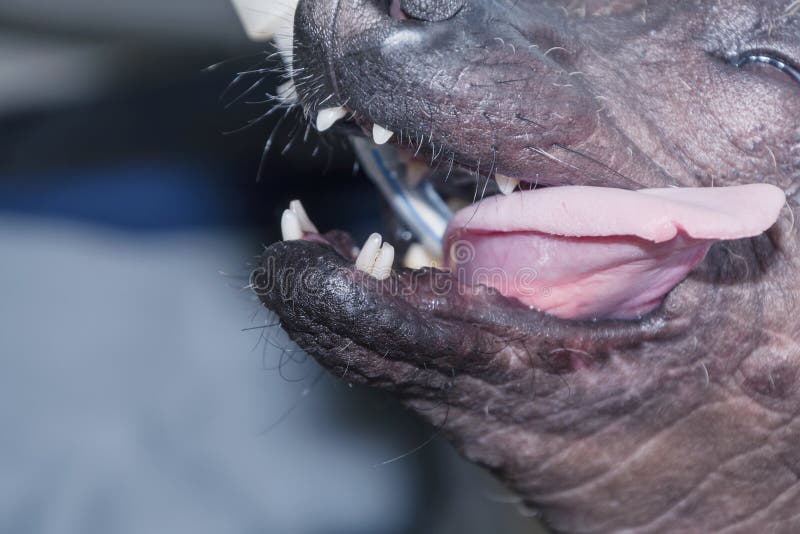
Dog with Double Fangs. Eruption of Permanent Teeth. Close Up Stock Image Image of inflammation
Baby canine teeth (lower): Usually erupt between 17-23 months old and are shed between 9-12 years old. Adult canine teeth (upper): Typically erupt between 11-12 years old.

How To Clean Dog Teeth (FINALLY a Natural Dental Care Routine) PawLeaks
The basics: The canines, also known as the cuspids or eye teeth, are located between the four front teeth (the incisors) and the flatter bicuspids, or premolars. We have four canines: two upper and two lower. Canines tend to be a bit darker than other teeth. When young children acquire their baby teeth, the canines are one of the last to come in.

Impressive Canine Teeth Pictures Carnivora
By Brian Peterson In Nebraska, male white-tailed and mule deer are most recognized by their elaborate, showy antlers. While we all have observed deer or pictures of deer with antlers, have you ever encountered a deer with fangs or tusks — canine teeth? If you have, this is extremely rare, possibly a 1 in 10,000 occurrence.

A Saúde Oral e os Dentes do seu Cachorro Gengiva do Cachorro
In mammalian oral anatomy, the canine teeth, also called cuspids, dog teeth, eye teeth, vampire teeth, or vampire fangs, are the relatively long, pointed teeth. In the context of the upper jaw, they are also known as fangs. They can appear more flattened however, causing them to resemble incisors and leading them to be called incisiform. They developed and are used primarily for firmly holding.

925 Sterling Silver Double Canine /Incisor Vampire Fangs Custom Grillz Custom grillz, Fang
Lethal Camel Fangs. Camels do have fangs. Their fangs (upper canine teeth) are long pointed teeth used for holding the food firmly and tearing it apart, and occasionally as weapons. They are conical in shape and can grow up to 1.5 inches long (4 cm). Before moving any further, it's important to explain the difference between canine teeth and.

Best Grillz Vampire Fangs Half Grillz Silver Tone Slim Bottom Lower Fang Canine Teeth Grills
The four canines, or fangs, of a domestic cat. (The largest two teeth of the top and bottom rows of teeth.) A fang is a long, pointed tooth. [1] In mammals, a fang is a modified maxillary tooth, used for biting and tearing flesh. In snakes, it is a specialized tooth that is associated with a venom gland (see snake venom ). [2]
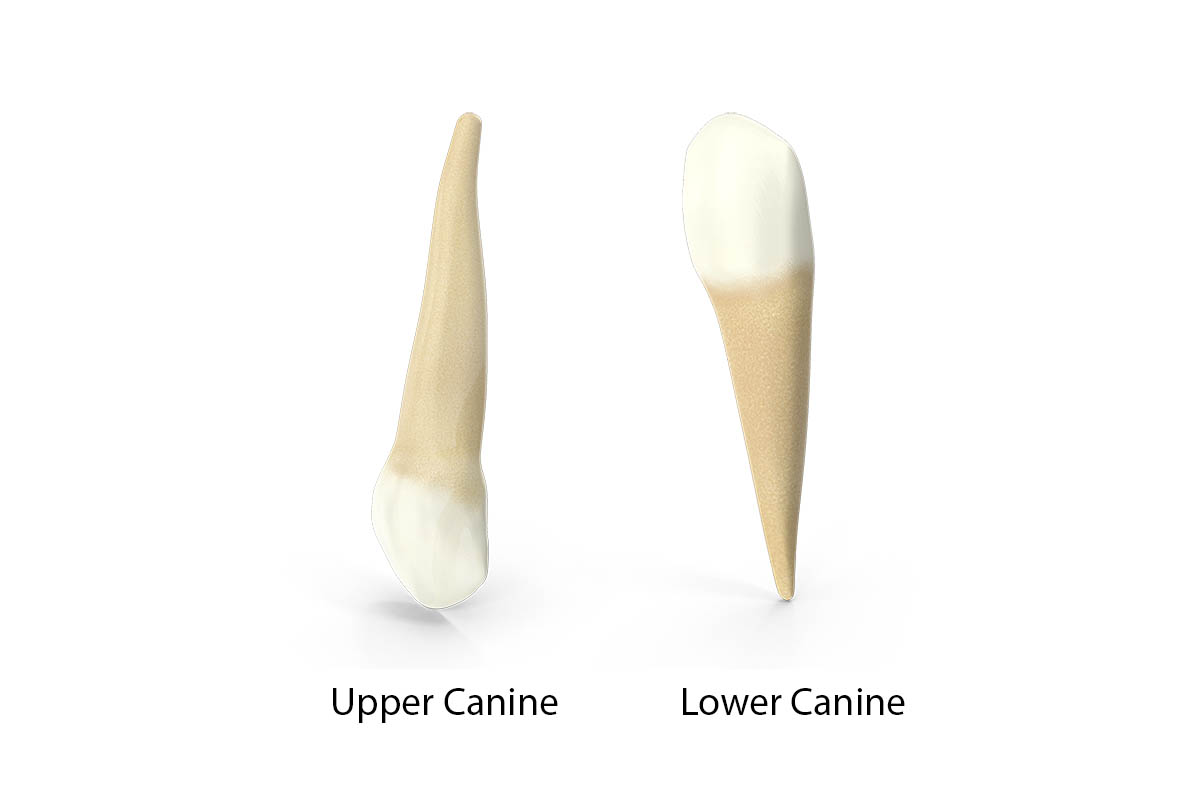
Canine Teeth Anatomy, Purpose, and Diseases of Cuspids Dentaleh
Canine tooth. Canine teeth are found in mammals. They are the eye teeth, fangs or dogteeth. They are on either side of the incisors. Their main function is to hold food firmly in order to tear it apart, and also attack and defence. In some mammals they are weapons of attack and defence. Examples are: wolves and dogs; the cat family; walrus.

How to Make Your Big Canine Teeth (Fang teeth) Look Smaller YouTube
Canine Teeth are Rare These "fangs" are actually canine teeth. All whitetail have lower canines, but few deer have upper canines. The harvested deer that do have them often go undetected because hunters focus on the teeth located in the bottom jaw when aging, not those positioned on top.

How to Brush Dogs' Teeth Step by Step Guide King West Vets
Canine teeth were first documented in Nebraska by a Nebraska Game and Parks biologist in 1963, when two mule deer (1 male and 1 female) were observed containing canine teeth at a deer check station in North Platte. The presence of canine teeth is likely a genetic trait, however, the mechanism that expresses this trait is still unclear.
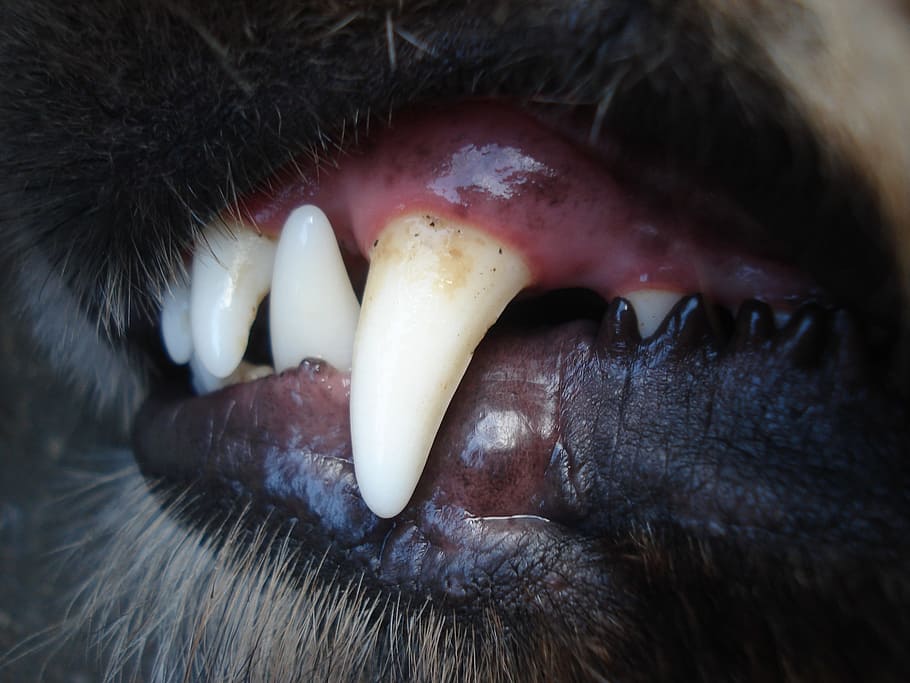
animal fang, Dogs, Baring, Tooth, Teeth, Fang, Dog, animal body part, one animal, animal head
Dogs have 42 adult or permanent teeth that should replace the baby teeth by about seven months of age. Puppies will begin teething at about three and a half to four months of age and will chew on items to help relieve the discomfort of the erupting adult teeth and loosen the baby teeth.

The Dangers of Canine Periodontitis Stumps and Rumps
Crown stretched out below the other teeth, they are sharper and more pointed. The name of those type of teeth derives from the fangs of dogs. Our furry friends have them way longer, though. Humans have 2 types of canine teeth - maxillary canine and mandibular canine. Maxillary canine teeth are called eye teeth.

Pet Dental Care A Vet’s Guide To Maintaining Excellent Oral Hygiene
Factors include the number of teeth extracted, which teeth are extracted, dog breed, and geographic location. On average, the additional costs can range from $100 to upwards of $2,000 in some areas.

How Do Fangs Work? Wonderopolis
Canine Teeth: Impactions and Extractions Explained Introduction. Many people share a fascination with dogs and often wonder about the similarities between humans and their furry companions. One particular feature that connects us is the canine tooth. Also known as cuspids, fangs, or eye teeth, canine teeth play a crucial role in our oral anatomy.
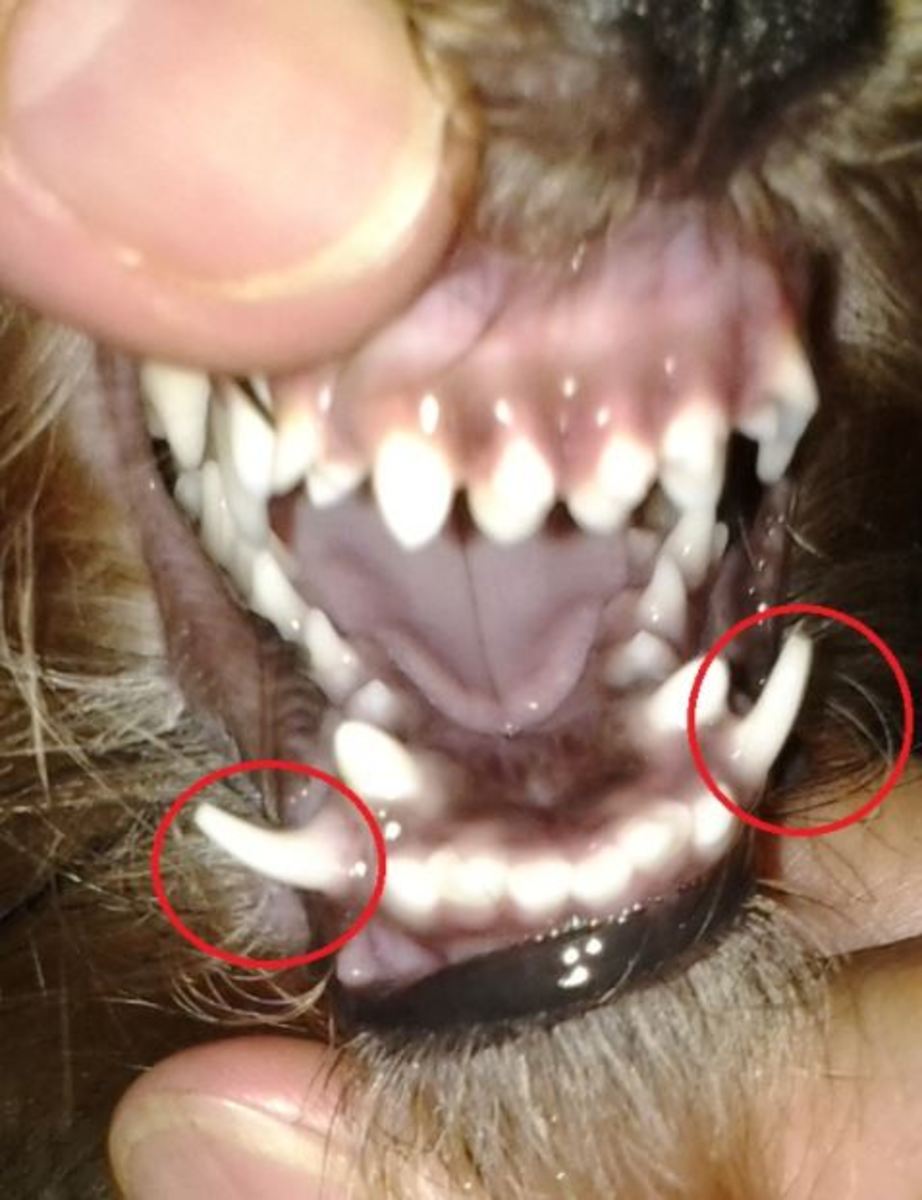
Help, My Puppy's Baby Teeth Won't Fall Out Dog Discoveries
Details There are generally four canine teeth: two in the upper (maxillary) and two in the lower (mandibular) arch. A canine is placed laterally to each lateral incisor and mesial to the premolars. They are larger and stronger than the incisors, and their roots sink deeply into the bones, and cause well-marked prominences upon the surface.
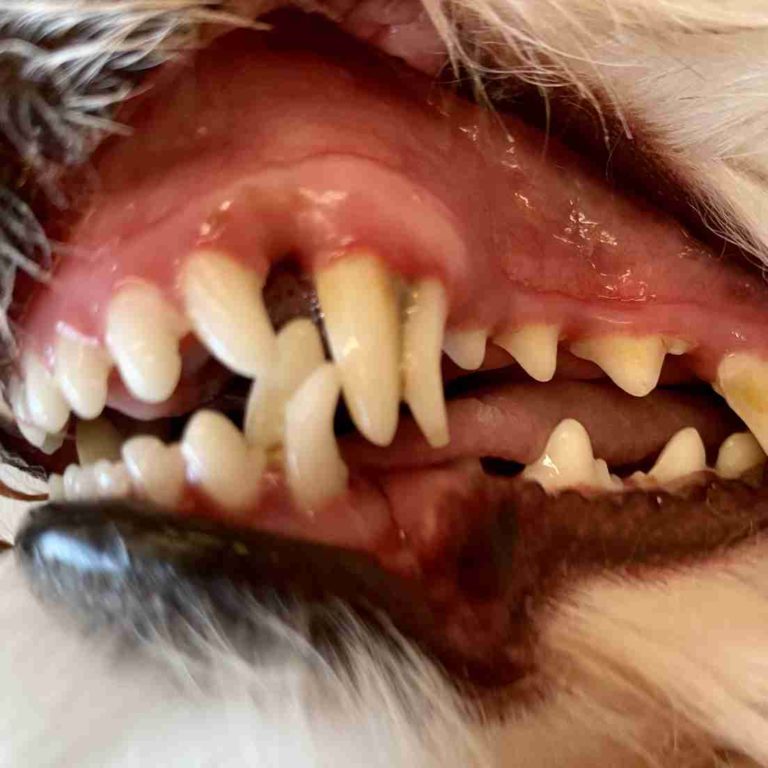
Help! My Dog Has Extra Retained Puppy Teeth Walkerville Vet
List of Animals With Fangs Conclusion Fangs! What's the first animal that comes to your mind? Snakes right? Most snakes have scary fangs, especially venomous ones. But did you know that there are many other animals with fangs too? Even herbivores.